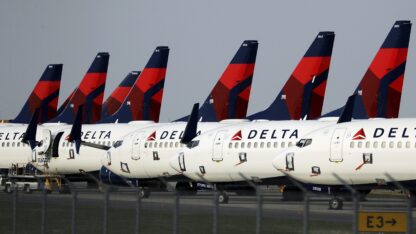New Delta Smartphone Technology Helps Passengers Track Bags
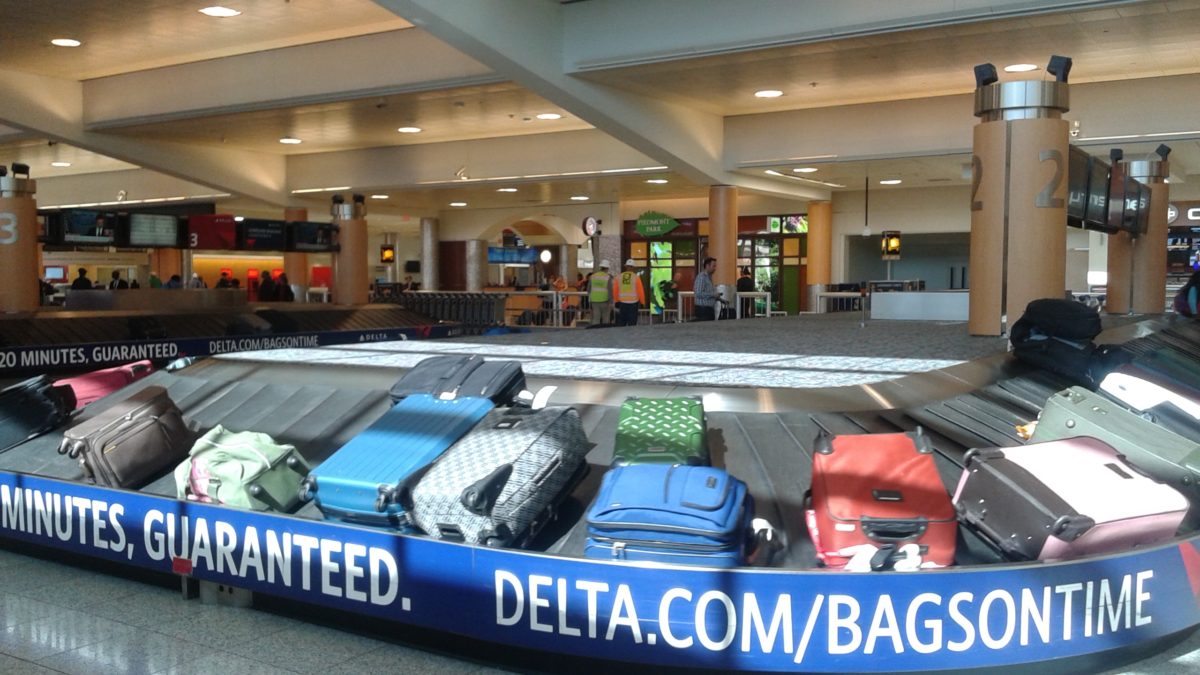
Tasnim Shamma / WABE
Your luggage tag may look ordinary, but if you’re flying with Delta Air Lines, it now has a microchip embedded inside. Atlanta-based Delta Air Lines is spending millions on new technology that allows its passengers to track their bags using a smartphone.
At Hartsfield-Jackson Atlanta International Airport, the headquarters of Delta Air Lines, Cynthia Tookes of Lithonia, Georgia, who flies once a week to sing with her church choir, said she loves the new feature that allows her to track her bags on the Fly Delta app.
“You press the icon, and it shows that my bags were delivered to Claim Area 8,” Tookes said. “I went right to 8, had no problem finding my bag. It was right there.”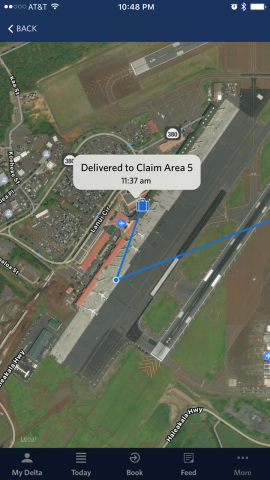
RFID Technology
Delta Air Lines is the first to roll out RFID or Radio Frequency Identification, tags at all of its destinations worldwide. The tiny microchips in each tag give off radio waves that help Delta track exactly where a customer’s bag is.
It’s also using RFID-enabled belt loaders, which will eliminate the need for Delta employees to manually scan each bag. A light will flash green when the right bag is being loaded onto a plane and red if a bag is being put on the wrong plane.
New Global Standard
Jim Peters is Chief Technology Officer for the global airline industry group SITA.
“We were actually formed in 1949 to put in telephone lines between the airports and airlines so that every airline didn’t have to go to every country where they flew and get phone lines installed,” Peters said. “Since then we’ve evolved from just regular telephones to data networks and shared counter technology.”
In a joint study with the International Air Transport Association, SITA estimates airlines could save $3 billion over the next seven years just by following Delta Air Lines’ lead on using RFID tags and belt loaders.
“The technology allows you to get better tracking than the paper-based barcodes, because if the piece of paper gets mushed up or is under the bag or gets ripped, the systems can’t scan it as well it could scan an electronic tag like RFID,” Peters said.
SITA’s study estimated airlines lose about 6.5 bags for every 1,000 passengers.
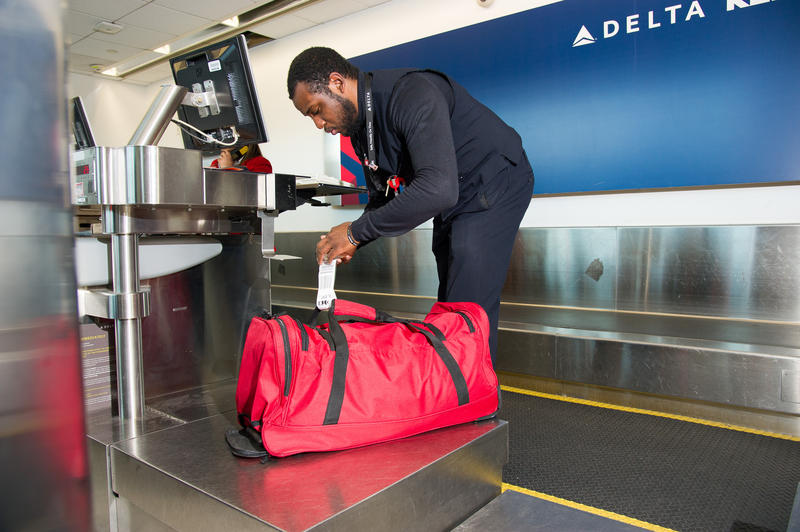
By 2018, airline executives anticipate tracking every bag during its entire journey. Currently, bags are scanned during check-in and at transfer points, but not when they arrive at a final destination.
Airline analyst Ashley Nunes said it’s costly for airlines to dedicate resources and time to finding and returning mishandled bags. Delta Air Lines is actually an industry leader in the United States for how few bags it loses.
“Airlines generally don’t tend to lose a lot of bags, but when they do, passengers tend to remember it,” Nunes said.
Missing Bags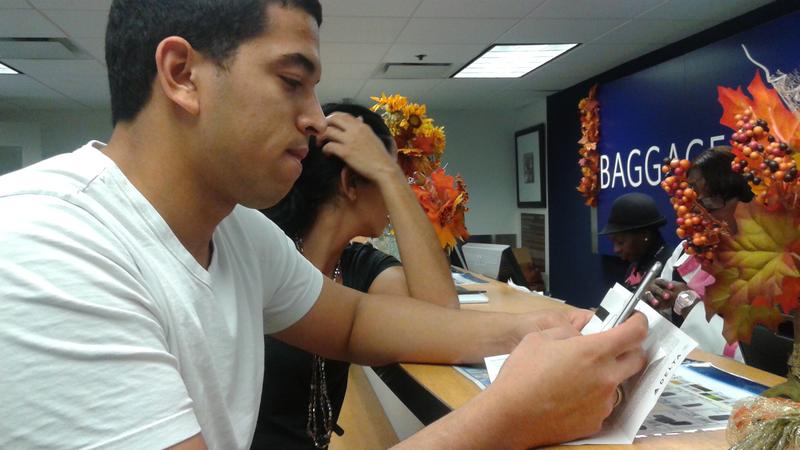
Khalil Chung, a financial analyst in Buckhead landed in Atlanta with his mom on a Delta flight from Fort Lauderdale, Florida. He’s one passenger who said he remembers clearly when other airlines have lost his bag.
“After that, then I kind of switched to Delta,” Chung said. “I’m bleeding Delta now.”
But about an hour after he landed, Chung asked if he was being pranked. He found out his mom’s black bag was missing. He downloaded Delta’s app to find out where it was, using the new technology,
“It says that it was delivered at Area 3 and it boarded the plane from Fort Lauderdale to Atlanta, however, it’s not here,” Chung said.
His mom’s suitcase never did show up. Delta said it was still working to find the bag.
9(MDAxODM0MDY4MDEyMTY4NDA3MzI3YjkzMw004))

